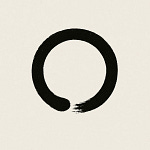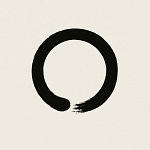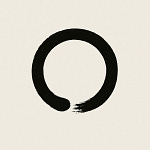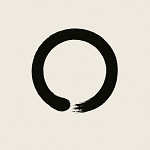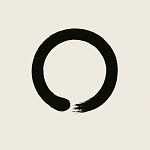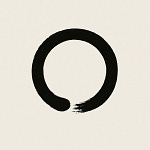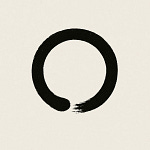John Pulleyn – January 17, 2024
The Endless Cycle: Imaginary Film and Spasm
Imaginary Film:
Our running thoughts that distract us from raw pain and discomfort.Spasm:
The emotional contraction triggered by pain, fueling more imaginary thoughts.
Cycle:
Imaginary film → Spasm → More imaginary film → More spasm → Endless.
Breaking the cycle happens when:
We rest in the pain itself.
We stop believing thoughts and feelings will "fix" our discomfort.
Two Parts of Practice:
Endless Disappointment
Life consistently fails to meet our hopes.
This wears down our strategy of thinking, striving, and winning.
Wearing Out the Desire for Victory
No one wins — everyone dies (Buddhist meditation on impermanence).
Deep reflection: I could die at any moment.
This realization softens arrogance and brings compassion.
"Looking for love in all the wrong places."
(Classic line capturing our restless search.)
Others Can't Make You Happy
We live under the illusion that others will fix our lives.
Other people are for enjoyment, not salvation.
Until that illusion is worn out, we can't rest with our pain.
Courage is needed to walk this path:
Life not going your way is actually a gift.
Each disappointment is an opportunity to deepen.
Prayer from Thailand (via Jack Kornfield):
"May I be given the appropriate difficulties so my heart can open with compassion."
Serious Practice vs. Casual Living
Some people resist serious practice, preferring to focus on "enjoyment."
That's fine — it just means they’re not ready yet.
Serious practice begins when:
We realize nothing external will solve our restlessness.
We exhaust the strategies that don't work.
Parallel to Recovery (AA):
Some manage to "get by" drinking moderately — but live a diminished life.
The truly lucky ones?
Those who blow it up so spectacularly they are forced to change.
What Hurts Us?
Does anything really hurt us?
On the surface: yes — job loss, illness, betrayal.
Deeper reality: No.
The true self cannot be hurt.
We suffer because:
We believe in a small, separate self made of thoughts.
We cling to conditions needing to be different.
Example:
Feeling lonely isn't about the facts ("I'm alone"); it's the thought ("this is wrong") that creates pain.
The Truth: Nothing Can Truly Hurt Us
Emotional suffering comes from:
Mistaking thoughts for reality.
Believing we need external things (love, success, recognition) to be okay.
"The truth is: I'm just sitting here."
(Not lonely. Not miserable. Just sitting.)
As practice deepens:
Life’s storms land more lightly.
We don't fight reality.
We experience true peace — not happiness from conditions, but peace through conditions.
Anthony de Mello on Emotional Independence
Interdependence (butchers, bakers, candlestick makers) is fine.
Emotional dependence = expecting others to make you happy → inevitable fear and control.
"Where there is love, there are no demands, no expectations, no dependency."
"When you leave, the symphony plays on."
True love =
Enjoying the presence of others.
Not needing them for your own happiness.
Practice Changes Everything
True practice:
Weakens the "small self" concept over time.
Allows us to live with lightness, resilience, joy.
Even during crisis, we can be useful, not engulfed.
Even if life falls apart:
Earthquake.
Illness.
Betrayal.
We are okay, because what we are cannot be harmed.
Quick Takeaways
(Heath & Heath, 2007 style)
🎯 Life’s disappointments are not insults — they are opportunities.
🎯 Other people can't save us — they are for enjoyment, not rescue.
🎯 True practice wears out false hopes and brings real freedom.
🎯 Suffering happens when we cling to false questions ("Why me?").
🎯 True joy arises from not fighting life, even in difficulty.
🎯 Nothing — no event, no person — can truly hurt our deeper self.




